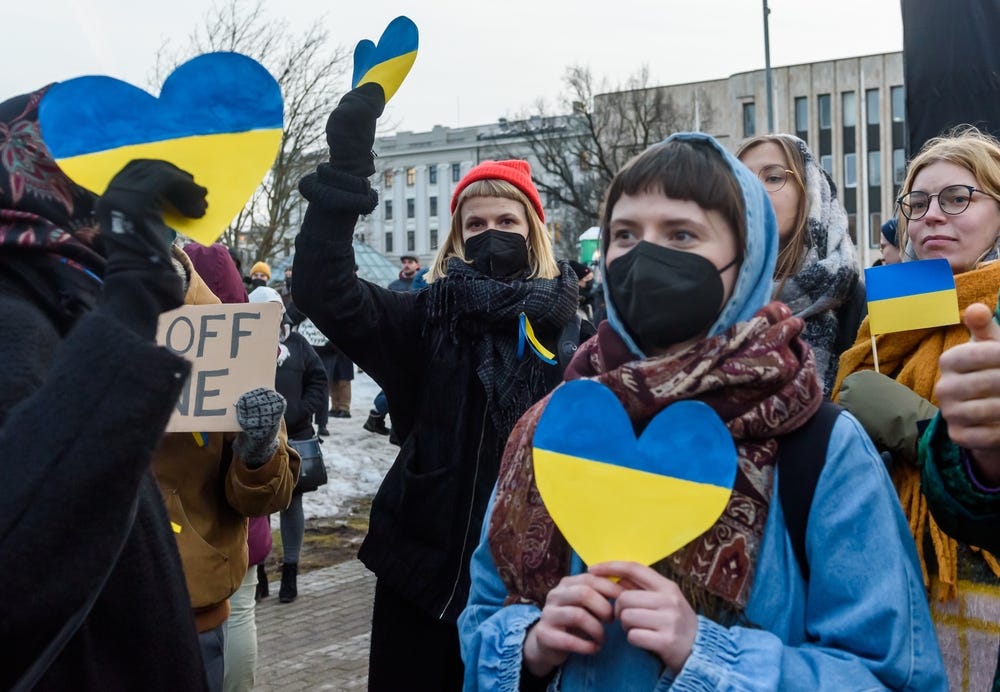I’m Michael A. Cohen, and this is Truth and Consequences: A no-holds-barred look at the absurdities, hypocrisies, and surreality of American politics. If you received this email - or you are a free subscriber - and you’d like to subscribe: you can sign up below.
Take advantage now of a 20 percent discount, celebrating the first anniversary of Truth and Consequences.
It’s my usual practice to send the audio from Zoom Chat episodes only to subscribers, but I’m making an exception for Friday’s conversation with Samuel Charap on the situation in Ukraine. This was a great discussion and one that, unfortunately, didn’t leave me with the best feeling about where things are headed. As Sam pointed out, things are likely to get much more violent in Ukraine, particularly now that Russian Vladimir Putin has his back to the wall. When things are going badly, Putin's inclination is not to fold his hand but instead go all-in. So one can, unfortunately, expect to see Russia adopt even more aggressive tactics than it has up to this point.
Sam and I also discussed the increasing challenge in seeing how all this ends. There’s no obvious settlement between the two, especially with the Russians seeking to decapitate the Ukrainian leadership and Kyiv demanding that Russian troops leave its soil. These are irreconcilable positions, and it’s hard to see where things go from here in a way that ends the conflict.
So please give it a listen and apologies in advance for some audio issues we had during the discussion.
The People’s War
There was one story that Sam and I were unable to touch on that deserves further amplification. On Saturday, Visa and Mastercard announced they are suspending operations in Russia. The two companies account for close to 75 percent of all payment transactions in Russia, so this kind of move could have a real impact. The two credit card companies are following the lead of dozens of Western companies that have pulled out of Russia in the last week. Earlier this week, for example, the oil company Shell followed the path of BP and pulled out of its Russian joint ventures. BP’s decision to abandon its stake with the Russian oil giant Rosneft could cost the company more than $25 billion. Make no mistake; these companies are taking a significant financial hit because public opinion demands it.
It’s the same reason Visa and Mastercard are suspending operations. Right now, the reputational hit of being associated, in any way, with Russia is too great for most companies to weather — and it’s even more true with publicly traded companies. If BP, Shell, Visa, or Mastercard continued to do business with Russia, they’d likely be hit with consumer boycotts and an avalanche of social media attacks. So the best move — even with the potential loss of billions of dollars — was to walk away.
This represents one of the fascinating aspects of the war: public opinion is having a disproportionate impact on the response to the invasion — not just in the actions of governments but of corporations and non-governmental actors. It’s yet one more reminder that when it comes to violating global norms about cross-border aggression, particularly in the age of social media and where every person with a cell phone is a reporter, the juice simply isn’t worth the squeeze.















Share this post